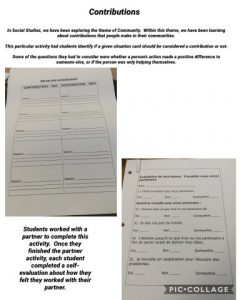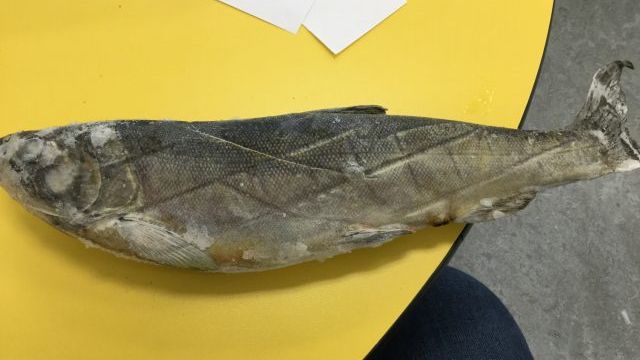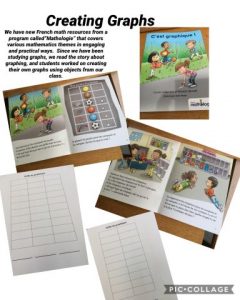Category: Uncategorized (Page 9 of 11)
Dear Parents,
The district has been having some difficulty with the server of late and we have received messages indicating that some email notifications did not go through. So this is a note to check that you have received notifications for our last two posts (salmon dissection and community contributions) but it is also a test to see if the issue is fixed and this message will get through to everyone. If you have been receiving all the notifications, please disregard this post.
Cheers,
Mme Marto & Mme Matousek
Today we wrapped up our salmon unit with a dissection. The class referred to our fish as Bob and he turned out to be a male. I dissected the internal organs and the students got a chance to look at them and touch them if they wanted to. A few students found the blood a bit much but most were fascinated. Then we dis a cut and paste activity. Have your child walk you through the photos.
Our class has been learning about various artists. They learned about Van Gogh and created their own version of Starry Night (displayed in our windows), Ted Harrison (in their portfolio), Picasso self portraits (ask them about it-they couldn’t stop laughing and comparing) and below are their gorgeous close up flowers, inspired by the work of Georgia O’Keefe. Enjoy!



